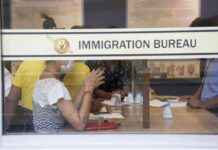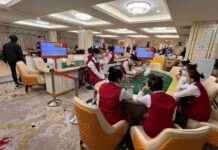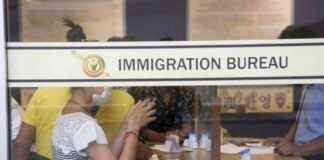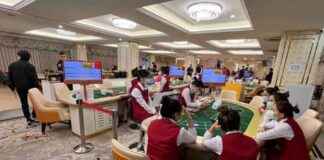Business leaders in Thailand are gearing up to meet with the Bank of Thailand governor on November 14 to discuss new financial measures to boost the sluggish economy. The recent US presidential election has posed new challenges for the country, especially in terms of potential impacts on exports due to higher tariffs under the incoming administration of Donald Trump.
The Joint Standing Committee on Commerce, Industry and Banking (JSCCIB) is expressing concerns about the possible obstacles that Thailand’s export sector may face, which could have a significant negative impact on the overall economy. In response to these uncertainties, the committee is calling for the implementation of new measures to support economic growth and stability.
Sanan Angubolkul, chairman of the Thai Chamber of Commerce, emphasized the importance of financial support from the central bank to help navigate these challenges. While Thailand has relied heavily on state spending through fiscal policy, additional measures are deemed necessary to address the current economic uncertainties.
The JSCCIB is optimistic about the potential for GDP growth in 2025, projecting a 3% increase with the help of state stimulus measures. This growth could potentially reach 3.5% if the central bank’s monetary policy aligns with fiscal efforts, according to committee members.
Apichit Prasoprat, vice-chairman of the Federation of Thai Industries, highlighted the need for support in the domestic automotive sector, particularly in boosting sales of pickup trucks. Stringent loan criteria by banks, coupled with high household debt levels, have hindered consumer spending in this segment. The industry is looking to the central bank to collaborate with financial institutions in relaxing loan requirements for pickup truck buyers, especially those who rely on these vehicles for work purposes.
In a proactive move, the JSCCIB has presented a set of stimulus proposals to Prime Minister Paetongtarn Shinawatra, including the establishment of a fund for providing auto loans to pickup buyers. This initiative, if implemented, would be jointly managed by financial institutions and the government to support consumer spending in the automotive sector.
Looking ahead, the committee will closely monitor the trade policies of the new US administration, as Thailand currently maintains a trade surplus with the US. Concerns have been raised about the potential impact of increased tariffs on key exports such as hard disk drives, solar panels, and air-conditioners. Additionally, the committee is wary of the possibility of a surge in low-cost imports from China if the US government introduces protective measures for domestic industries, leading to a flood of Chinese products in Asian and Thai markets.
Overall, the collaborative efforts between business leaders, government authorities, and the central bank will be crucial in navigating the economic challenges posed by the changing global landscape. By implementing strategic financial measures and staying vigilant on trade developments, Thailand aims to foster sustainable economic growth and stability in the coming years.




















